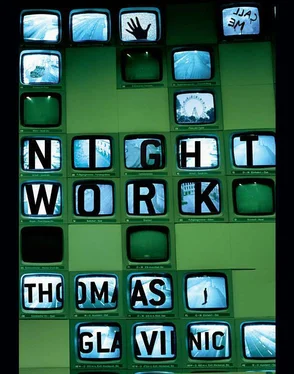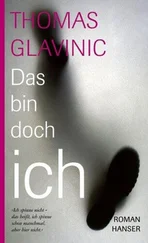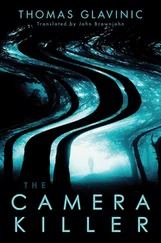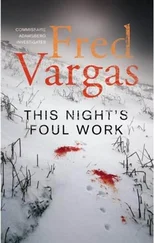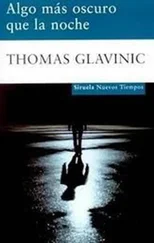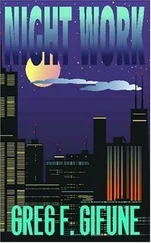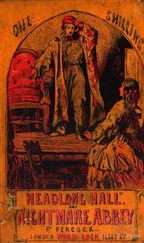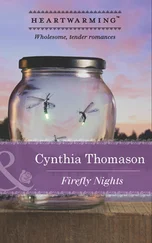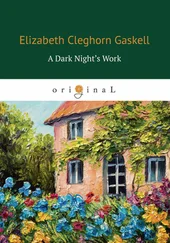Thomas Glavinic - Night Work
Здесь есть возможность читать онлайн «Thomas Glavinic - Night Work» весь текст электронной книги совершенно бесплатно (целиком полную версию без сокращений). В некоторых случаях можно слушать аудио, скачать через торрент в формате fb2 и присутствует краткое содержание. Год выпуска: 2008, Издательство: Canongate Books, Жанр: Современная проза, на английском языке. Описание произведения, (предисловие) а так же отзывы посетителей доступны на портале библиотеки ЛибКат.
- Название:Night Work
- Автор:
- Издательство:Canongate Books
- Жанр:
- Год:2008
- ISBN:нет данных
- Рейтинг книги:5 / 5. Голосов: 2
-
Избранное:Добавить в избранное
- Отзывы:
-
Ваша оценка:
- 100
- 1
- 2
- 3
- 4
- 5
Night Work: краткое содержание, описание и аннотация
Предлагаем к чтению аннотацию, описание, краткое содержание или предисловие (зависит от того, что написал сам автор книги «Night Work»). Если вы не нашли необходимую информацию о книге — напишите в комментариях, мы постараемся отыскать её.
Night Work — читать онлайн бесплатно полную книгу (весь текст) целиком
Ниже представлен текст книги, разбитый по страницам. Система сохранения места последней прочитанной страницы, позволяет с удобством читать онлайн бесплатно книгу «Night Work», без необходимости каждый раз заново искать на чём Вы остановились. Поставьте закладку, и сможете в любой момент перейти на страницу, на которой закончили чтение.
Интервал:
Закладка:
He wondered what she did for a living. Was she a secretary, or did she own a boutique in one of the larger towns nearby?
The next photo was of a man. Her husband? A bit older, with a greying moustache and dark, piercing eyes. He looked like someone who spent all day driving around on business in a 4WD.
Two fair-haired children. One eight or nine, the other only a few months old. Neither looked particularly bright.
*
The woman’s image stayed with him all the way to the motorway. Sporadic thoughts about the house recurred even while he was twiddling the knobs of the radio shortly before Linz. Then he forced himself to concentrate so he didn’t overshoot the exit.
He made out the huge factory chimneys from far away. No smoke was rising from them.
He drove into the city without observing the speed limit. He hoped a policeman would stop him, but he quickly realised that something was wrong here too.
There were no pedestrians.
The shops flanking the street were deserted.
Traffic lights turned red, but he waited in vain for other cars to cross his route.
He sounded his horn, gunned the engine and slammed on the brakes. His tyres screamed, sending up a stench of burning rubber. He sounded his horn again: three short, three long, three short. He drove along the same stretch several times. Not a door opened, not a car came his way. The air smelt less unpleasant than it had on his last visit, but it was thundery.
When he pulled up at a chemist’s and got out, he wondered why it felt so exceptionally cold. Having suffered from the heat for weeks, he was now shivering. However, this probably owed more to his cold than to the gathering storm.
He smashed the plate glass door of the chemist’s and took a packet of aspirin and some throat pastilles from one of the shelves. On the way out he noticed some echinacea and pocketed a small bottle.
It didn’t take him long to find a pub whose door was unlocked. He called. There was no response, but he hadn’t expected one.
He noticed nothing out of the ordinary in the bar, which reeked of stale tobacco smoke and rancid fat.
He called again.
In the kitchen he put a saucepan of water on the stove and tossed a handful of potatoes into it. He killed time in the bar with a newspaper dated 3 July. People had still been here that day: gravy stains and breadcrumbs on the pages showed that. The newspaper itself was just as unremarkable as those he’d read at the station the day before. Nothing pointed to an event of exceptional magnitude.
He went outside. The first flashes of lightning could be seen. The wind was getting up. Empty cigarette packets and other bits of rubbish went skittering across the street. He tilted his head back and massaged his shoulders, which were stiff after his drive. Black clouds were massing in the sky. A distant rumble. Another flash of lightning. And another.
He was about to go back inside when a crash rang out directly overhead. Without looking round he ran to the car and locked himself in. He withdrew the knife from its sheath. Waited for a few minutes. The windscreen misted over.
He lowered the driver’s window.
‘What do you want?’ he yelled.
Another crash, fainter than before, followed at once by yet another.
‘Come out of there!’
Heavy raindrops came pelting down on the bonnet, on the roadway. More rumbling.
He looked up as he ran back to the entrance through the rain, but his view was obstructed by trees. He dashed into the bar, opened the door to the stairs and pounded up them, knife in hand. On the first floor was a long, narrow passage almost devoid of light from outside. He failed to find the switch in his haste.
He came to a door. It wasn’t shut. The wind kept banging it against the jamb with monotonous regularity. He pushed it wide open with the knife held out in front of him.
The room was completely bare. There wasn’t even any furniture in it. The big casement window was flapping in the wind.
He turned on the spot a couple of times, knife at the ready, then walked to the window. He looked out, glanced back over his shoulder at the room, looked out again. The window was above the entrance and a little to one side.
Just as he withdrew his head a gust of wind blew into the room. The window banged against his arm. He shut it and went downstairs again, still with the knife in his hand.
In the bar he subsided onto a bench. It was a while before his rapid, shallow breathing steadied. He sat staring at the wooden panelling until he remembered the potatoes.
*
The thunderstorm ended just as he laid his knife and fork aside. He left the plate on the table and returned to his car, leaping over muddy puddles on the way.
He drove to the station.
The booking hall and the long, gloomy passage from which flights of steps led to the platforms were as deserted as the forecourt and the platforms themselves. He smashed the window of a kiosk and took a can of lemonade, which he drank at once, dropping the empty can in a litter bin.
He found a postbox on the forecourt. Linz Station, 6 July , he wrote on a postcard. After a moment’s thought he addressed it to his father.
*
Although Jonas had passed a number of car showrooms, he had something better in mind than an Opel or a Ford. No good opportunity to exchange his rattletrap of a Toyota presented itself until he reached the outskirts of the city, where he at last spotted a dealer offering more than just family saloons.
Jonas was no petrolhead. He’d never gone in for fast cars, but it now seemed absurd to restrict his speed to 160 k.p.h. That meant saying goodbye to his old car. It had cost more than it was worth and held no sentimental associations.
To his surprise, his wrench made no impression on the showroom window behind which the cars awaited their purchasers. He’d never had to deal with safety glass before. He rammed it with the Toyota instead. There was a crash, and splinters came raining down on the bonnet. He backed out again. The hole in the glass was big enough.
He chose a red Alfa Spider. He found the keys on a hook behind the sales desk. It proved harder to locate the key to the only vehicular exit, a pair of big double doors, but he eventually found that too. He went back to the Toyota and cleared out all his belongings.
Before getting in he turned and waved his old car goodbye. He felt foolish a moment later.
A hundred metres from the car showroom he stopped at a service station. The petrol pump worked without any problem. He filled the tank.
On the way to Salzburg he tested the Spider’s potential. The acceleration pressed him back into his seat. He put out his hand, meaning to try the radio, but none had been installed. He reached instead for the throat pastilles on the passenger seat.
*
Lying beside the road beyond Wels, as though someone had thrown it away, was a guitar case.
Jonas backed up. He threw stones at the case from a few feet away. He hit it but nothing happened. He kicked it. Eventually he opened it. There was an electric guitar inside. Water had seeped into the case. It had evidently rained hard here too.
He walked around for a while. The grass soaked his trouser legs to the knee. He was near the motorway access road. This spot was probably frequented by hitchhikers, so he shouted and vigorously sounded his horn. He came across discarded beer cans, cigarette ends, condoms. The sodden earth squelched beneath his shoes.
He leant against the passenger door.
Anything might or might not be significant. Perhaps that guitar case had fallen off the roof of a car. Perhaps it had belonged to some person who had vanished at this spot. However and whyever they’d vanished.
*
The sun was going down behind the castle as he passed Salzburg station. He drove across the station square, sounding his horn, then headed for his aunt’s flat in Parsch. It took him some time to find the way. He sounded his horn when he finally got to Apothekerhofstrasse. When there was no response he got in again. It was unlikely that he would find anything informative at his aunt’s place, so he saved himself the trouble of breaking down the door.
Читать дальшеИнтервал:
Закладка:
Похожие книги на «Night Work»
Представляем Вашему вниманию похожие книги на «Night Work» списком для выбора. Мы отобрали схожую по названию и смыслу литературу в надежде предоставить читателям больше вариантов отыскать новые, интересные, ещё непрочитанные произведения.
Обсуждение, отзывы о книге «Night Work» и просто собственные мнения читателей. Оставьте ваши комментарии, напишите, что Вы думаете о произведении, его смысле или главных героях. Укажите что конкретно понравилось, а что нет, и почему Вы так считаете.
